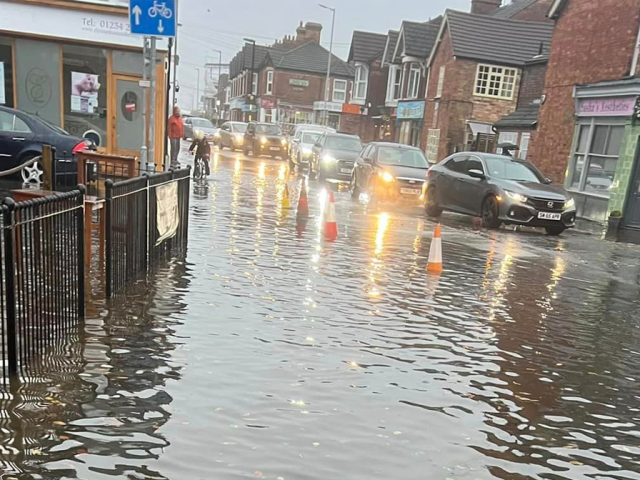Discover how Luton’s community adapts to road closures and infrastructure upgrades, turning short-term disruption into long-term sustainability and resilience. Learn more now!
Bedford Borough Council is facing criticism for what has been described as a "waste of resources" in dealing with blocked drains that are simply covered by leaves. The issue was raised at last week's Rural Affairs Committee meeting on 24th July, where highways service manager Iain Booth revealed the extent of the problem.
Misconceptions About Blocked Drains

Source: https://www.bedfordindependent.co.uk/leaves-covering-drains-a-drain-on-council-resources/
During his briefing, Mr. Booth highlighted a significant "misconception" prevalent among residents regarding blocked gullies. He indicated that often, the issue is not a genuine blockage but rather a case of leaves covering the grate. "In fact, it’s often just a simple case of some leaves covering the grate," Booth explained. "That costs us quite a lot of time and energy because we’ll send the gully motor out which could have been going elsewhere."
Collaborative Efforts and Other Challenges
In efforts to mitigate these unnecessary calls, Booth outlined that the council is working closely with parish councils to educate and advise the community on discerning whether a gully is genuinely blocked. He also pointed out other challenges that create the impression of blocked drains, such as maintenance issues related to surface water sewers managed by Anglian Water and obstructed roadside ditches, which are typically the responsibility of landowners.
"A lot of the time it’s actually maintenance of the surface water sewer by Anglian Water, so we have a struggle there," Booth said. He further added, "In the rural network there’s a lot that goes into roadside ditches, these are generally the landowners’ responsibility. We are working with lots of landowners to make sure that they are keeping on top of excavating their ditches so that our gullies work properly. If roadside ditches aren’t clear then our gullies have nowhere to displace the water to."
A Shift to Cyclical Maintenance
The committee was informed about a strategic shift back to a cyclical approach to gully maintenance. Mr. Booth emphasised the inefficiency of the previous reactive system, stating, "The problem we were having previously was we were spending so much time being reactive, driving from one place to another, rather than trying to have a systematic approach and working through it, which I think, in the end, makes it quicker."
This revised approach appears to be yielding positive results. "Because we’re literally getting through so much work rather than just spending so much time driving around, which is really working wonders," Booth added.
Community Support and Future Plans
Councillor Nicola Gribble (Independent, Renhold & Ravensden) expressed her approval of the new systematic approach, stating, "It gives me great joy that we’re now on a programme of planned maintenance. You cannot underestimate the good it does." She also suggested that the council should carry out a promotional campaign for autumn/winter to explain how the gullies are maintained.
As the council endeavors to optimise its resources and improve its drainage systems, the collaboration between local authorities, parish councils, and landowners will be crucial. The move towards planned maintenance and public education campaigns could potentially alleviate many of the current issues, ensuring that council resources are used more effectively and efficiently.
Conclusion
The discussions at the Rural Affairs Committee underline the importance of efficient resource management and community cooperation in maintaining essential infrastructure like drainage systems. As Bedford Borough Council continues to refine its strategies, the focus remains on balancing preventive measures with reactive responses, ultimately aiming for a more systematic and less wasteful approach.